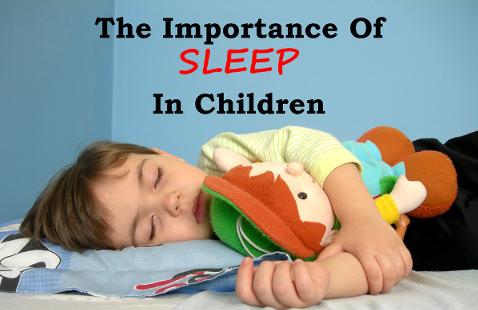Feature Article:
The Science of Sleep and Learning
Head Primary School Teacher and Grade 4A Homeroom Teacher

All parents know that good sleep is important for their child’s health. This knowledge can easily be forgotten, though, in our busy modern lifestyles. Good sleep, both of our own and that of our children, is often one of the first things to be neglected when we have too much to do. Recent scientific research is discovering that quality sleep is crucial to our overall physical, mental, and emotional health. For children, quality sleep may mean the difference between normal and abnormal development and learning. Parents need to take sleep very seriously. Many people know that good sleep is necessary for our bodies and brains to rest and reset. Scientists are now discovering that sleep is needed for much more than just rest. It is during sleep that our brains sort through the day’s experiences and record the important ones as new memories. Sleep is thus essential to learning. Sleep is also when our brains rid themselves of waste chemicals. Human growth hormone, which is crucial to a child’s physical development, is primary released during sleep.
Inadequate sleep has been linked to numerous physical and mental health issues. People who don’t sleep enough have a higher risk of obesity, diabetes, and depression. Inadequate sleep can lead to attention hyperactivity issues in children. Children who don’t sleep enough have difficulty regulating their emotions properly, which can lead to problems in many aspects of their lives. And, as any teacher can tell you, sleep deprived children simply don’t learn as well.
The National Sleep Foundation in the United States offers the following science-based recommendations for how much children should sleep. Preschoolers should get between 10 and 13 hours of sleep per day, children between the ages of 6 to 13 should get 9 to 11 hours of sleep per day, and teenagers should get 8 to 10 hours a day.

Besides getting enough sleep, children and parents should also practice good “sleep hygiene” to make getting to sleep easier. Electronics and televisions should be removed from the bedroom. Because the blue light emitted from the electronic devices interferes with the brains’ ability to fall asleep, children should not use any screens (tablets, phones, computers, TVs) at least 30 minutes before bed. Practices like meditation and mindfulness can help prepare children fro bedtime. Snacks before bedtime should be high protein (nuts, unsweetened yogurt, peanut butter, cheese and crackers) instead of high sugar. Finally, form a regular bedtime routine and stick to it.
Good sleep and good learning go hand in hand. Make getting good sleep a priority for both your children and yourself. More information about the importance of sleep can be found at https://sleepfoundation.org.
Geography Bowl 2017
Grade 1A Homeroom Teacher












Its a Jungle Out There!!
Mid Term Show – Oct. 18
October 18 (Wednesday) at 1:15pm @ the Auditoirum

Grade 4 Plant Dissection
Grade 4B Homeroom Teacher





Grade 5 Mold Terrarium
Grade 5B Homeroom Teacher
These were a few of the inquiries that the fifth graders investigated over the past few weeks. These inquiries took us on a tour of the web of life as we explored a handful of different ecosystems and how energy travels through each of them. In our mold terrariums, students observed how fungi decompose matter. Decomposers, they learned, play an important part in the web of life. They break down matter so that it can be recycled, and the energy cycle can start all over again.


Grade 3 Puppet Show
Grade 3B Homeroom Teacher



Grade 5 Field Trip to Metro Forest
Grade 5A Homeroom Teacher








Important Dates
October 13th – Rama IX Memorial Day (No school)
October 18 – Its a Jungle Out There Mid-Term Show
October 23 – 27 – Midterm Break
October 30 – Classes Resume
October 31 – Halloween Trick or Treat at School
